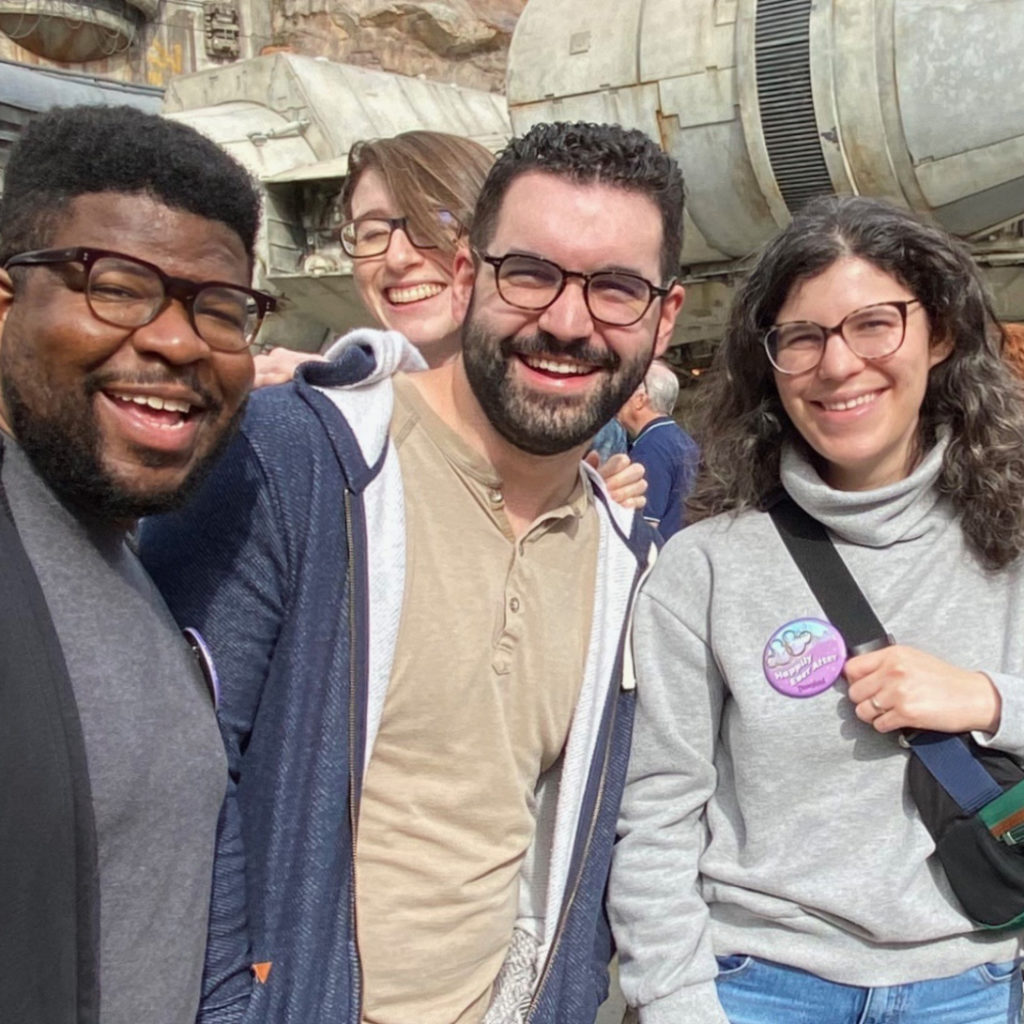“The pursuit of happiness” is built into the philosophy of the United States. In the Declaration of Independence it’s an inalienable right, immediately after “life” and “liberty.” How this isn’t the primary motivation in creating government policy eludes me. Especially these days, there is so little attention paid to pursuing happiness for everyone and too much emphasis on making sure the cards are stacked to make certain people happier than others as if it’s a zero-sum game.
It is also a generational thing. My great-grandparents lived in Europe, Germany, and Russia. They were generally poor, rural, and literally “beyond the Pale.” But they wanted more for their children and sent them to America around the turn of the 20th century. They wanted them to have a better life, free from oppression, and more opportunities to be happy.
My grandparents all settled in the Washington, D.C., area to earn a living and raise their children. They lived in communities with many of the people who were their neighbors across the sea. Together, these communities grew into vibrant, successful parts of the D.C. area. Often refused participation in social clubs, fraternities, and sororities, they formed their own. They bought buildings and built grand synagogues. My maternal grandmother and her sister owned properties and ran a grocery store on Benning Road in Northeast D.C., building a financial legacy to make their children’s lives easier.
My parents, Marvin and Thelma, grew up with the support of families comfortably ensconced in the American middle class. They came of age in the 1950s and benefitted from the opportunities brought by public education, less overt discrimination, and the growth of the Nation’s Capital. They felt entitled to the right to pursue happiness. That meant finding love (anyone, as long as they were Jewish), raising a family, and making a secure, comfortable living. But also, something more—the luxury of choice. The freedom to find a job that suited their skills and personality, to live where they wanted, and to find their own happiness.
My parents, along with us children, moved into the suburbs, and my father, always wanting to be his own boss, opened a men’s store. He wasn’t tied to a generational family business and, thanks to the automobile, wasn’t obligated to live near his workplace—or his relatives. He forged his own future; made his own choices. What they wanted for their children was more—not just a good job, but one that excited us. They were willing for us to try things and maybe to fail to find our happiness. They wanted their kids to have more opportunities, more choices, so sending us to college was not a choice. It was an obligation.
I was lucky—I always knew I wanted to do creative things for as long as I can remember. In Kindergarten, I remember drawing Chevrolet chevrons and sticking all the words I knew how to spell inside each one. Throughout elementary school, if I could do a history paper in the form of a comic strip, I was all in.
My grandmother surprised me one day years ago when I asked her what Dad wanted to be when he was in high school. She said that he was always a comedian in high school. People thought he was very funny, so he wanted to be in show business. I was amazed to learn something so unexpected about my father. When I asked him about it, he shrugged it off and said it was just an impossible dream and you have to be realistic. He married my mom and compromised his ambition for love. But for him, at least he got to choose. And he always was a fun, goofy guy.
I had always admired my father striking out on his own and building a business that he could control, so I wasn’t sure how that would square with my desire for creative work while still making a living. A graphic design studio was the perfect combination for my personality, talents, and skills. Although I was always working to achieve a client’s vision—a skill in itself—it also gave me a platform to do other creative projects.

The pursuit of happiness is not about living in a state of constant bliss. John Lennon is attributed the saying, “Life is what happens when you are busy making other plans.” Attention should be paid to what makes you happy in the moment, what makes you happy day-to-day, and the having confidence to make challenging and ambitious plans for the future. Like the generations before, I wanted my kids, Rebecca and Steven, to have that, but I also wanted them to have more. It is not just safety, security, opportunity, or choice, but the ability to make art without compromises and share their passions with others. As they grew up, we always encouraged them to explore their interests and refuse to accept anything less, regardless of the challenges.
Rebecca became the first female creator of a cartoon series for Cartoon Network. She also wrote dozens of songs performed throughout the series. Steven Universe (named for her brother) built a following of tens of millions of viewers because she fought to include themes of inclusiveness, tolerance, and acceptance. She not only does what she loves but integrates her heartfelt beliefs into her work. Steven contributed to Steven as lead background artist and has worked on art for Disney and Netflix. If you look up mensch in the dictionary, you will find a picture of him.
Now they both live on the West Coast, thousands of miles away, but at least they are together. Steven and Rebecca have always been best friends who have supported and encouraged each other to “go for it.” I like to think my enthusiasm for animation and my general geekiness about cartoons had a significant influence. Still, despite whatever notoriety I have accrued in my chosen field, I am proud to be known as The Father of Rebecca and Steven.